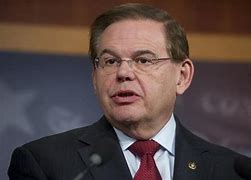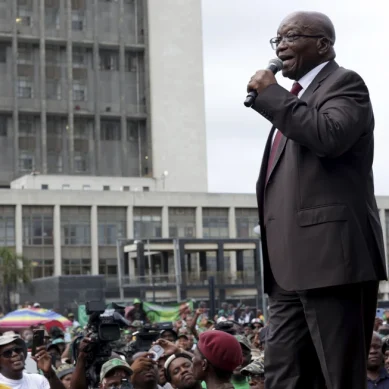
According to journalist Paul D. Thacker, on February 19, 2020, EcoHealth Alliance’s Peter Daszak and Wellcome Trust’s Jeremy Farrar published a statement in The Lancet that claimed a possible Wuhan lab accident was a “conspiracy theory.”
The statement did not disclose that Daszak was funding research led by Shi Zhengli at the Wuhan Institute of Virology.
On February 26, 2020, scientists working behind the scenes with Zhengli and virologist Ralph Baric, published a commentary in Emerging Microbes & Infections that claimed it was a conspiracy theory to speculate that the pandemic started in a Wuhan lab. Mead said the pandemic facilitated government intervention in scientific publishing:
“Most of this government influence is happening behind the scenes to avoid the appearance of impropriety. And when a scientific journal such as Nature or Science adopts a rapid publication process for Covid-19-related research … it tends to compromise the quality and reliability of the findings. It also makes it easier for outside influences to dictate the angle or perspective, or overall thrust, of the article in question,” observes Thacker, publisher of The Disinformation Chronicle.
He goes on, “Beginning in 2020, this collaboration was tightly synchronised so as to allow for rushed authorisation of the mRNA vaccines without sufficient risk evaluation and management protocols.”
Mead said this interference limited scientific discourse, adversely impacting the public.
“[During the pandemic] we could not mention the term natural immunity without being castigated or reflexively labelled an ‘anti-vaxxer,’” Mead said. “Early treatment and vaccine safety issues were, of course, also censored.”
Yet, in remarks to The Hill, a spokesperson for subcommittee Democrats accused Republicans of building “an extreme, partisan and conspiratorial narrative against our nation’s public health officials” and have not “revealed a cover-up of the pandemic’s origins nor a suppression of the lab leak theory [by] Dr Fauci and Dr Collins.”
Blaxill highlighted the increased use of retractions by scientific and medical journals to silence non-establishment narratives on Covid-19 and other topics. He said: “One worrisome trend I have seen is the use of retractions rather than public debate to manage scientific disagreements. My experience with the retraction of ‘Autism Tsunami’ was instructive. Our 2021 paper sailed through peer review and was among the most heavily downloaded publications of the year.”
But after criticism of the paper reached the editors of the journal that published the paper, the editors informed Blaxill and his co-authors they intended to “re-review” the paper. A few months later, the paper was retracted.
According to Blaxill, “The retraction process itself is what is broken. Instead of allowing debate to play out in public, through letters and responses in the journal, dissenting opinions and unpopular narratives are canceled.”
Brian Hooker, chief scientific officer for Children’s Health Defence, told The Defender, “In the case of having my own scientific paper retracted in 2014, I know the federal government played a strong role in getting the publication removed from print.”
“When the CDC whistleblower story broke … I was immediately put on notice by the journal (Translational Neurodegeneration) that the paper would be taken down from their website with a notice of concern. At one point, the journal put a notice on my paper that it was a threat to public health,” Hooker said.
McCullough criticised the use of retractions to silence critical papers. “As an editor-in-chief for over 20 years, I never retracted a paper, nor did I receive pressure from the publisher to pull a valid paper. That is because the peer review process and letter-to-the-editor processes work as data are vetted and interpreted,” he said.
“Scientific journals often manage the peer review and publication process to promote favoured narratives and suppress dissent,” Blaxill said. “Scientific merit is rarely the priority in their management. Instead, supporting the favoured (or ‘consensus’) narrative is the guiding principle more often than not.”
The experts who spoke with The Defender said that Congress needs to examine more than just the three journals whose editors-in-chief have been invited to testify on April 16.
“They should also be questioning these journal editors about their connections with Big Pharma,” Hooker said. “Journals such as JAMA, Pediatrics, etc., have corporate sponsors through their industry organizations which create myriad conflicts of interest.”
According to Thacker, “If you’re going to be a corrupt journal the way Science Magazine has turned itself into a completely corrupt institution, then we need to begin to think about whether or not publicly funded research can be published in these journals.”
“Taxpayers are funding this research, which ends up in these corrupt journals and lines the pockets of people running these corrupt journals. That needs to end. Something needs to be done to ensure that if you’re not going to abide by the basics of ethics and science publishing, then you can’t publish federally funded research,” he added.
Similarly, Francis Boyle, professor of international law at the University of Illinois and a bioweapons expert who drafted the Biological Weapons Anti-Terrorism Act of 1989, told The Defender:
“The real issue here that must be inquired into by Congress is the fact that Big Pharma has bought and paid for almost all science journals of relevance, to promote their pro-drug, pro-vaccine propaganda and disinformation, to the grave detriment of the public health of the American people.”
Thacker, who previously worked as an investigator for the US Senate, said, “What we’ve learned from this process is that these scientists cannot be trusted. They lie all the time. I am not sure that this hearing is going to do anything unless they bring the documents out and they start doing referrals over to the Department of Justice.”
- The Defender report / By Michael Nevradakis, senior reporter for The Defender











